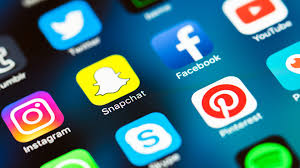 Facebook is the company we increasingly love to hate – but boomers still ‘like’ it. Rant on. So much negative press, well deserved, about Facebook lately, including the lawsuit about knowingly duping children playing games. Then there was the Pew Research estimated number of deleted accounts (mostly young people) and no small deal, a big security breach. Clearly this is a company with management issues – and someday will either fail (unlikely), be broken up, or be regulated, even in the US, which has for some unknown reason done nothing to date, unlike privacy actions taken in Europe. According to eMarketer, though, baby boomers are still big users – of the 76.4 million of them, 31.9 million are using Facebook. Hopefully not trying to stay connected to teens – who are departing for other platforms like Snapchat, according to eMarketer, including Snapchat. On the positive side, Snapchat is not yet owned by Facebook – which will be combining Instagram, Facebook, and WhatsApp into a single platform by 2020.
Facebook is the company we increasingly love to hate – but boomers still ‘like’ it. Rant on. So much negative press, well deserved, about Facebook lately, including the lawsuit about knowingly duping children playing games. Then there was the Pew Research estimated number of deleted accounts (mostly young people) and no small deal, a big security breach. Clearly this is a company with management issues – and someday will either fail (unlikely), be broken up, or be regulated, even in the US, which has for some unknown reason done nothing to date, unlike privacy actions taken in Europe. According to eMarketer, though, baby boomers are still big users – of the 76.4 million of them, 31.9 million are using Facebook. Hopefully not trying to stay connected to teens – who are departing for other platforms like Snapchat, according to eMarketer, including Snapchat. On the positive side, Snapchat is not yet owned by Facebook – which will be combining Instagram, Facebook, and WhatsApp into a single platform by 2020.
Twitter – is it relevant in the older adult market segment? Is it relevant at all? So aside from US political tweets, which dominate our attention, Twitter itself is hardly a fact of life for Americans, and certainly not for older adults (though they may see plenty of tweets displayed on newscasts). According to this recent informative summary about Twitter, 80% of its actual users are outside the United States; boomers and seniors are generally not interested, but heads of state are very interested (no kidding). And as all can see, political Tweets are reported minute by minute in the national TV broadcasts, so there’s no need to log on to see them. Bots are also good at tweeting misinformation. Sigh. But here’s the head-scratcher – 75% percent of B2B businesses market on Twitter. One wonders – to whom? And do their customers see these Tweets? And how can a business viewer vet one tweet over another? Note the half-life of a tweet is 24 minutes.
Google – is it a verb or a monopoly – and what is ‘Truth'? By now, you have seen a bit of controversy over ranking search results in favor of Google’s partners; questions about the right to be forgotten on Google (or getting a video off of YouTube), or other privacy issues or anti-competitive behavior. To help you catch up, read about the antitrust complaint from DuckDuckGo. But is there really an alternative to Google, now that it has become a verb? Go Google that – or go the extra inch and create a shortcut to DuckDuckGo or Microsoft Bing. Take a look at a not-so-brief Wikipedia history of Google issues or read through the angry perspective of Yelp’s CEO Jeremy Stoppelman. It is intriguing that the term 'fake news' is associated with politics – even spawning websites to rank news source credibility and generating controversy about the choices. In fact, fake, overstated, or manipulated information is the lifeblood of the modern Internet. Forrester once said that the Internet Changes Everything (meaning that in an optimistic way) but today, it should be Absolutely Anything Changes the Internet. Optimism off.
LinkedIn -- has it ruined the recruiting industry -- and given Microsoft too much control? It certainly altered the task of finding qualified candidates -- they're on LinkedIn and may be bombarded with job possibilities/noise. Because internal recruiters are on LinkedIn (using its own recruiting platform), because of more job openings than there are people to fill them, dependency on it has grown. And in reality, does LinkedIn have any serious competitors? Microsoft paid $26 billion for LinkedIn and then bought GitHub for $7.5 billion -- have they cornered the market on developer recruiting and software innovation? And consider that LinkedIn (and Twitter!) lead in the subject of social recruiting (which is apparently also being done from Instagram!).
Some skepticism is in order. We can always second-guess the so-called information served up to us on the Internet. But how many of us do? Who checks multiple sources or use multiple search engines? We wait and watch the flap in the EU, hoping that some subset of newly created privacy protection will extend to us – not just a box you must check acknowledging that "This site uses cookies" inform you that it tracks what you have viewed. Sure, we are able to Clear Cookies on our web browsers, but how many of us do it? Having to re-enter information is an inconvenience. We like the fact that browsers remember who we are and our last interaction. Rant off.
